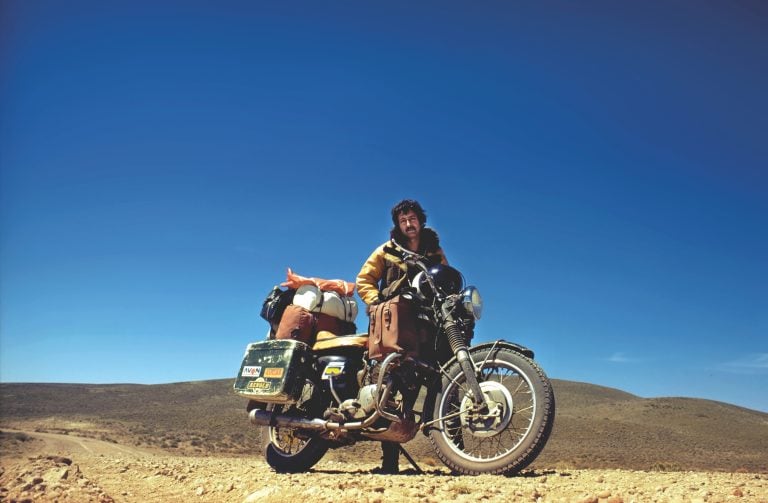I was 14-years old when my dad handed me his first edition copy of Jupiter’s Travels. He’d bought the book one lunchtime back in 1979, the year it was published. Money was tight in those days and my dad later joked he’d spent his lunch allowance for the entire week on the hardback.
Despite the hunger that followed, Ted Simon’s account of his four-year journey around the world on a Triumph Tiger proved a wise purchase. It won pride of place on my family’s bookshelves, undergoing multiple reads and inspiring my dad’s own motorcycle journey to Europe.
He couldn’t have known back then that, more than a decade later, he would pass on that first edition to his as yet unborn son. It’s something I’ll always be grateful to my dad for. I devoured Jupiter’s Travels. It was the perfect elixir for a restless teenager curious about the world but still trying to figure out his place in it.
My young mind learned from those meticulously crafted pages that the world isn’t a place to be feared but embraced, that travel is about the people you interact with more so than the landscapes you pass through, and that travelling by motorcycle is quite frankly the coolest thing anyone can do. Those lessons have stayed with me to this very day.
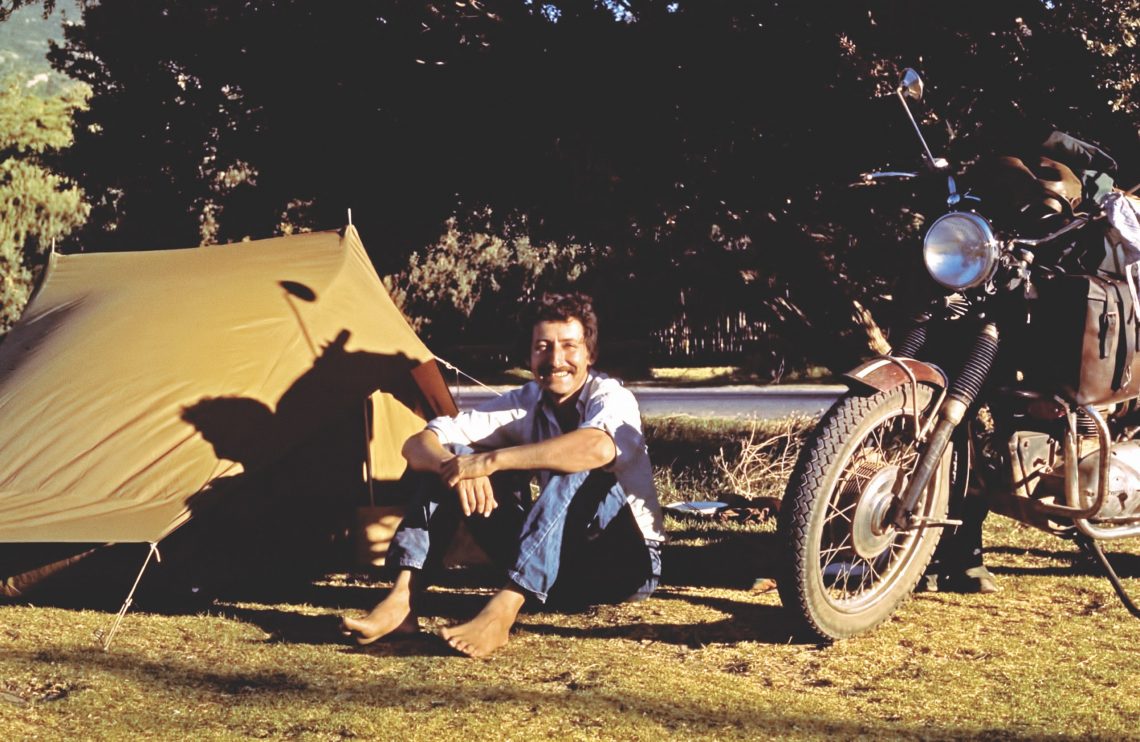
“What’s extraordinary is how long it has survived”
“What year did you read it, when would that have been?”, Ted asks when I tell him about my introduction to Jupiter’s Travels.
“I was 14, so that would have been around 1993 or 1994”, I replied.
“It’s interesting that it was 15 years after it was published that you got it”, Ted says. “What’s extraordinary about it (Jupiter’s Travels), is how long it has survived and how well it is still doing. I think it’s mainly because it had the same effect on so many people as it had on you.”
I strongly suspect Ted Simon, who’s now in his late eighties, is too much of a gentleman to brag about his achievements, so I shall do it for him. Forty years after Jupiter’s Travels was first published, it has been read by millions. It remains one of the most important and influential books ever written about motorcycle travel, inspiring generations to go forth and explore.
Perhaps most famously Ewan McGregor, of Long Way Round fame, cited Jupiter’s Travels as his inspiration to travel on two wheels. In short, Ted is a hero to many of us adventure bikers, as well as plenty of people who choose to explore the world.
With this in mind, I was painfully aware that Ted must have discussed a journey made four decades earlier more than enough for two lifetimes. I asked him if he minded covering old ground again.
“No, that’s alright. I can’t begrudge the time. You know, the book has been important to me too. Obviously, it’s been not only a great source of income, but it has kind of validated my life in a way almost nothing else has.”
With Ted’s blessing, I asked him to cast his mind back to 1973 to explain why he decided to embark on a motorcycle journey during a period when this form of travel wasn’t at all fashionable.
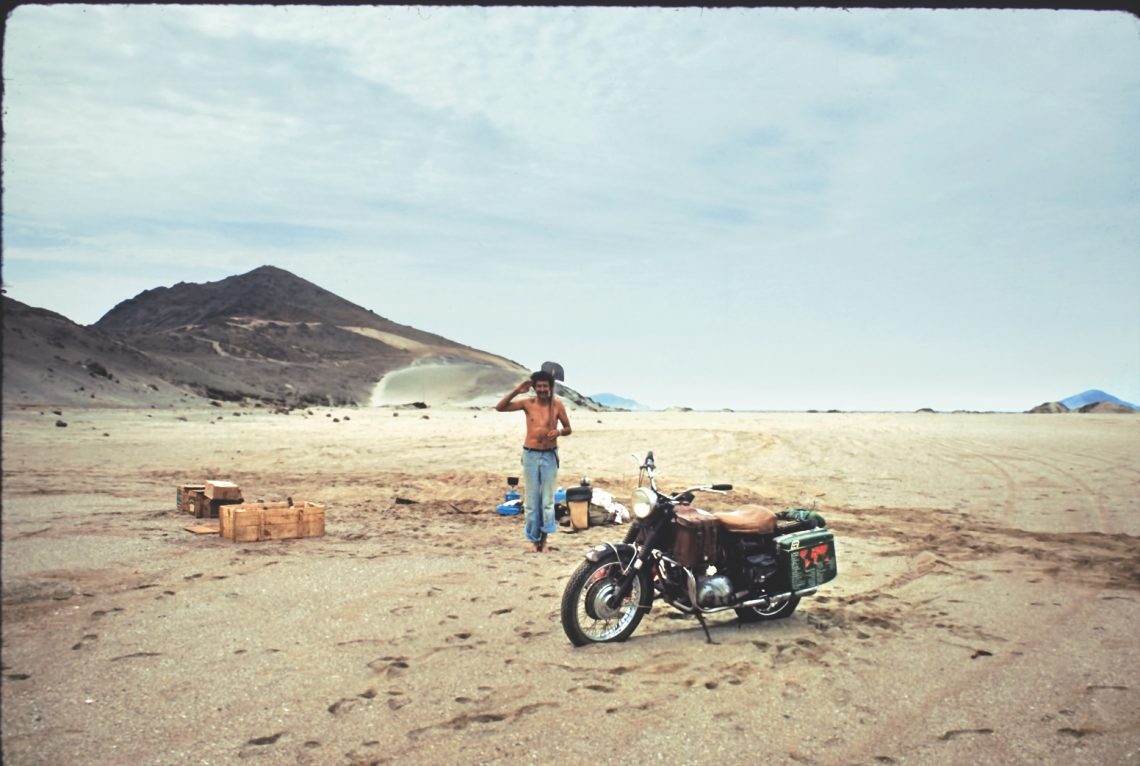
What led to Jupiter’s Travels?
“The interesting thing to me is how completely different everything that had happened to me in life up until then was from the journey. I mean, there was nothing in my life that would have predicted that I would have anything to do with motorcycles, or that I would want to ride one around the world. It came almost out of nowhere.”
In fact, Ted had been a successful Fleet Street journalist on newspapers including the Daily Sketch, the Daily Mirror, and the Daily Express. He was sacked three times by the Express, with Ted explaining that, in the cutthroat newspaper business, “you weren’t anyone until you got the sack”.
Having fallen out of love with journalism, Ted moved to France and began restoring a ruined 13th-century gatehouse in the South of France while writing freelance celebrity stories for newspapers when actors filmed on the continent. However, it was while watching television on a visit to England that the idea of travelling around the world first came to him.
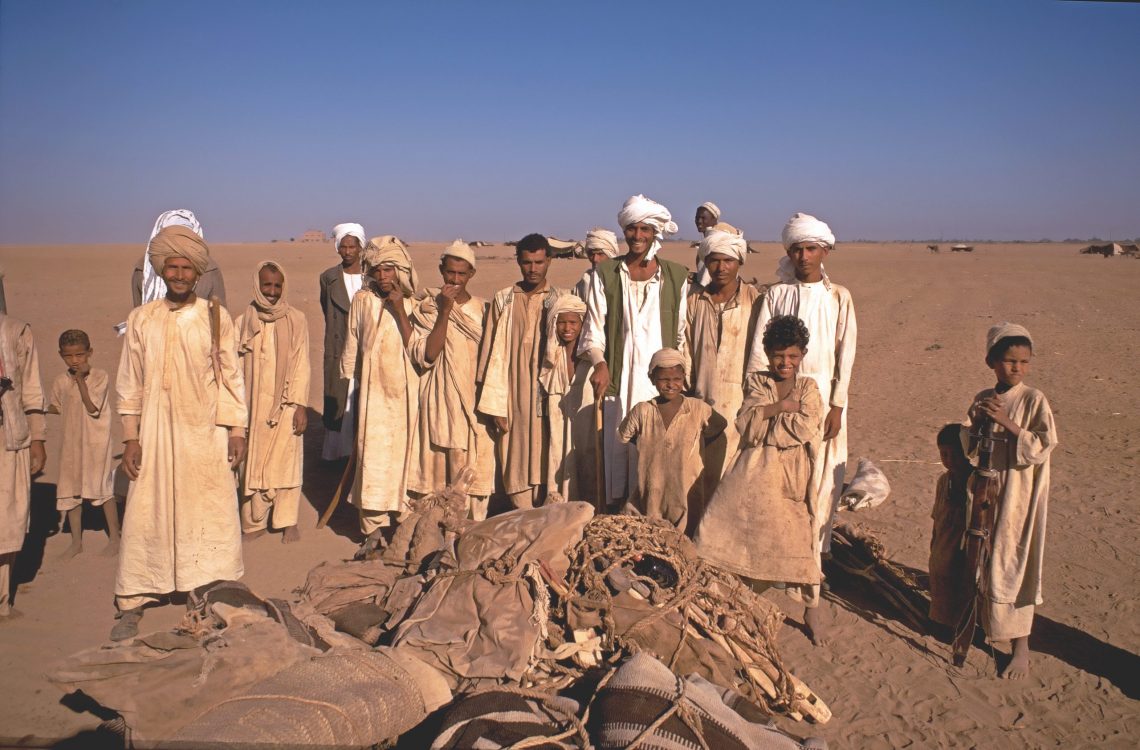
“I realised I was really very ignorant about the world”
“I watched a programme about poverty. This was the beginning of 1973. The West was just getting out of the war, out of scarcity, the Sixties had come and gone. People were beginning to worry about the state of the world and they were actually looking out beyond their own little bubble. There was a programme about poverty, a sort of Attenborough type of programme.
“There was an island somewhere in the South Seas where people were supposed to be terribly poor but the pictures showed the most beautiful beaches, with tropical trees and fruit and stuff like that. There were a lot of men on the beach and they were absolutely beautifully brown, they had glistening brown bodies, and they were dragging huge amounts of fish in from the sea. This kind of contradicted the idea of poverty. If that’s poverty, I wouldn’t mind some of that. It was such a contradiction and I thought, well this is ridiculous. Despite having done the work that I’d done, I realised I was really very ignorant about the world. Most people were then.
“And then it struck me. I’d been on this planet for 30 years or more and I knew so little about it. That’s what founded the germ of the idea in my head about what I was going to do. I was thinking, if I did go around the world, what would be the best way to do it. I went through all the available possibilities I could think of, from donkeys to roller skates, trains and planes and so on. None of them were practical or interesting until I thought about doing it on a motorcycle.
“I thought that would be a very exciting way to do it. It would be bloody dangerous I would probably get killed, but it would be worth the effort and it would make a good book. So that’s really how it all began. It took six months to get it going.”
The fact Ted couldn’t ride a motorcycle wasn’t an obstacle and, after passing his test, he chose a 500cc Triumph Tiger as the bike that would take him around the world. After initially planning to be away for 18 months, the journey saw him travel 64,000 miles, through 45 countries, over four years.
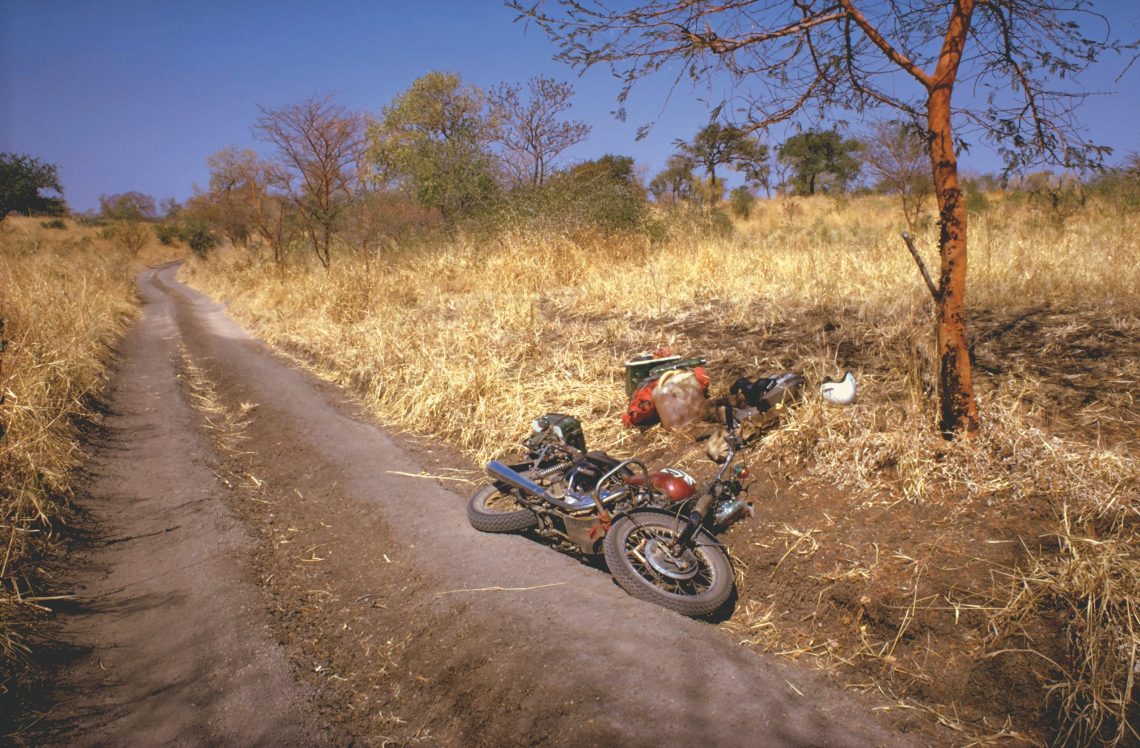
64,000 miles, 45 countries and four years
“I didn’t have any problem thinking that I could ride a motorcycle because millions of people, including presumably millions of idiots, were doing it, so I didn’t see why I should have trouble. But, of course, I had no idea what it would be like to ride a bike in bad conditions. And, I had absolutely no idea what those bad conditions would be except that I knew there would be desert somewhere. I had no idea how to do that and I never had time to find out before I started. It would have been useful to have someone to tell me how to ride across sand, but I never had time to learn, or mud, or any of those things.”
However, when Ted rolled into Egypt early in his journey, he found more pressing matters than road conditions were of concern.
“There was a war. I was hoping it would be over by the time I got there, but it wasn’t and it became more and more of a threat as I approached. It did pose a few problems, mainly because of the Egyptians themselves. The populous was all het up about Israeli and Jewish spies and so on. I got arrested twice when I was in Alexandria because people thought I was a spy, but it was dealt with anyway. I was concerned, especially at the frontier because I had a visa that said you could cannot cross the frontier overland into Egypt. I thought they’d shoot me or something like that. But they were actually very nice, they were lovely.”
When I suggest many people would have been tempted to turn back for home after getting arrested twice in a war zone, Ted shrugs off the thought.
“No, it never entered my mind then, and it didn’t even enter my mind in Brazil. I mean, being locked up in Brazil, that was the worst thing that happened to me (Ted was detained on suspicion of being a spy during a period of military dictatorship). It was imposed on me from outside. I was afraid they might top me because there was no reason why they wouldn’t or shouldn’t at that time, but my real fear was that they might send me back to England. That was what I was most afraid of after all that, to be deported to the UK. The whole time, even in the worst circumstances, I knew the journey was the best thing that had ever happened to me, it was a marvellous experience.”
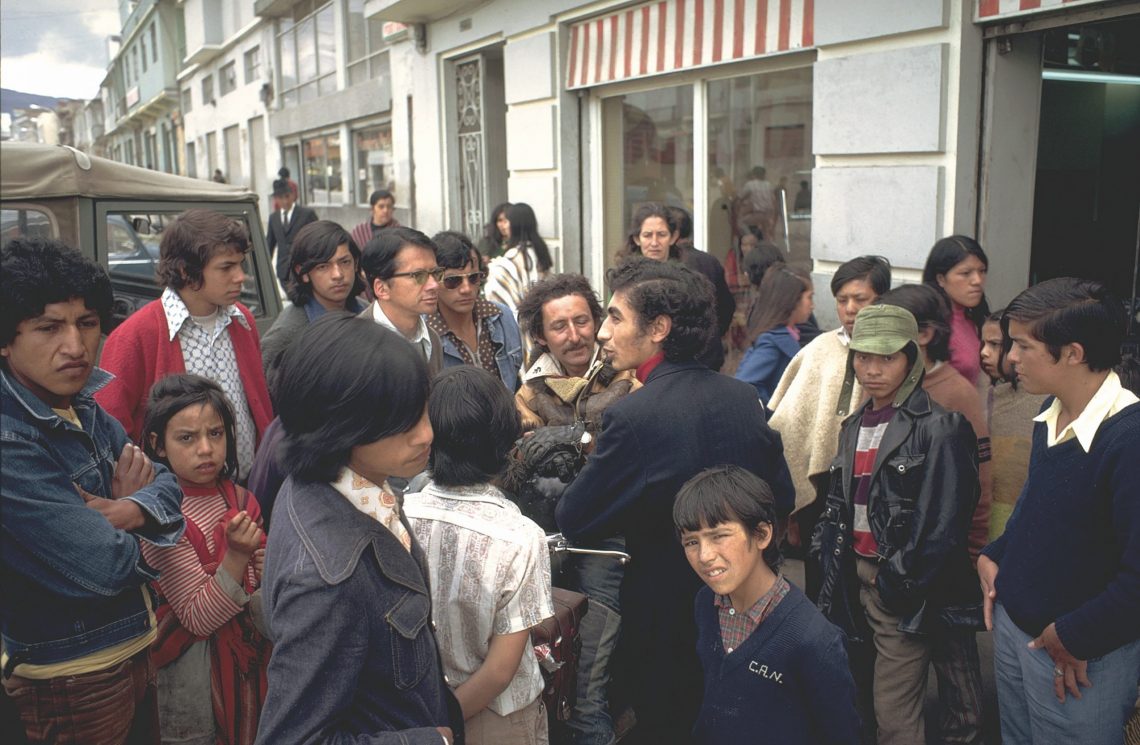
“I got most comfortable in places that were actually terrible places”
“It seems to me I got most comfortable in places that were actually terrible places. I mean, like Chile, where there was Pinochet and all sorts of terrible things were happening to people, but I enjoyed it, partly because I fell in love with a really beautiful woman and secondly because it was all so exciting and I wasn’t personally under threat. I was alright. I remember that as being a very good time. And then there was the ranch in California. That was just something out of time altogether. I had four months at that ranch. That really was very special. Not something someone could really hope to do today. Innocent times, sort of, anyway…”
The relationships Ted formed and the time he spent working the land on the ranch in California had a huge impact on his life, so much so he later decided to make the Golden State his home.
“It turned out very well. I was there for 35 years in the end, on this piece of land. I think I lost… I think I sacrificed a fair amount by doing that. The book had become so important in the UK, it was very well known. If I’d lived in the UK then I could probably have used that notoriety, or whatever you want to call it, I could probably have used that to have developed a completely different life to the one that I have actually led. I’m not at all sure it would have been a better one, no idea at all.
“Going to California, I did it for the wrong reasons. I did it to save a marriage which was impossible to save, but simply through being there it turned me into a sort of agricultural environmentalist really. The organic farming that I did there was an important thing in my life. I’m not at all sorry about having done it (moved to California), but it was very much a turning point.”
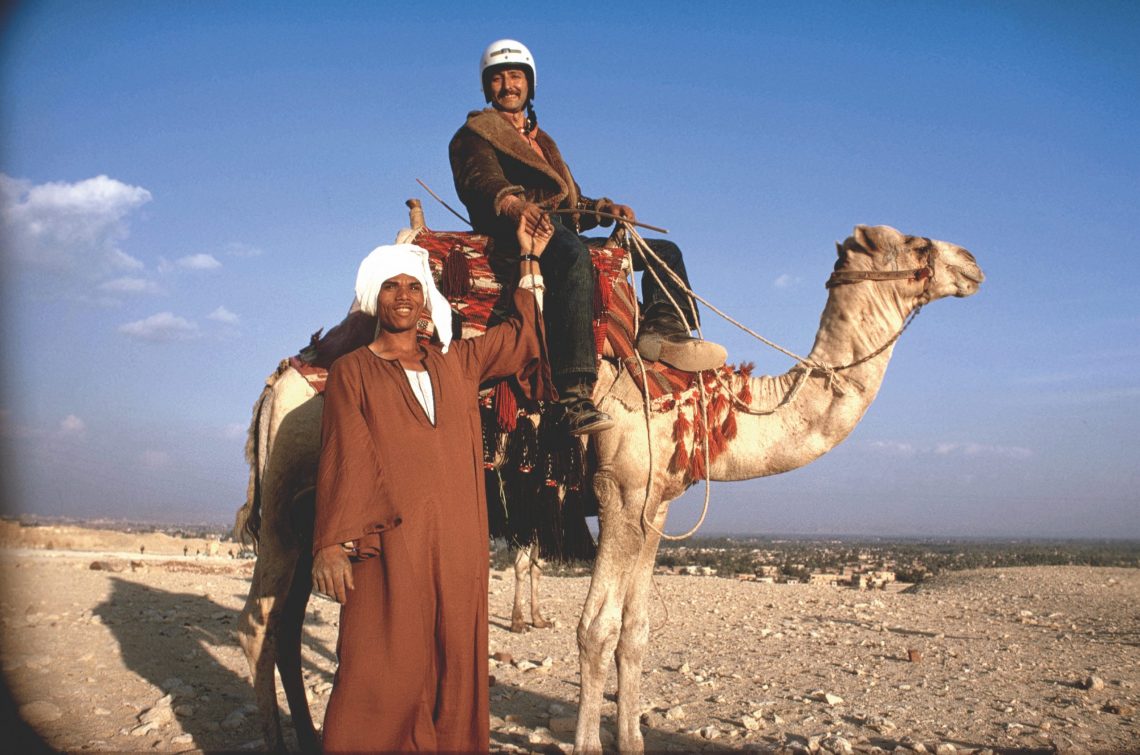
The challenge of returning home
While those who choose to explore the world by motorcycle spend plenty of time planning adventures, big and small, nothing could prepare Ted for the challenge of returning home.
“The end of a journey like the one I made is a very hard thing to negotiate because, after four years on the road, it is almost impossible to just resume normal service. You can’t. Everything becomes very turbulent. I was in real turmoil. And although I’d learned a huge amount about life, and about the world, and about everything, it wasn’t much help in solving my own personal problems. So, I made bad decisions and did strange things.
“Fortunately, I had the book to write, so that kind of saved me in a way because I had to focus on the book, so it was a steadying influence, but in every other respect I was quite wild. And then the book suddenly became very successful and that also kind of threw me off a bit. But I don’t know that I can say anything very quotable about it.”
As an author, Ted Simon is an honest as they get. Jupiter’s Travels isn’t a tale of macho bravado but is instead an insight into what happens when a man opens himself up to the world – the loneliness, the friendships, the breakdowns, the loves and the losses. Putting your vulnerabilities down on paper for the world to scrutinise isn’t an easy task. I ask Ted how he dealt with this challenge during such a tumultuous time in his life.
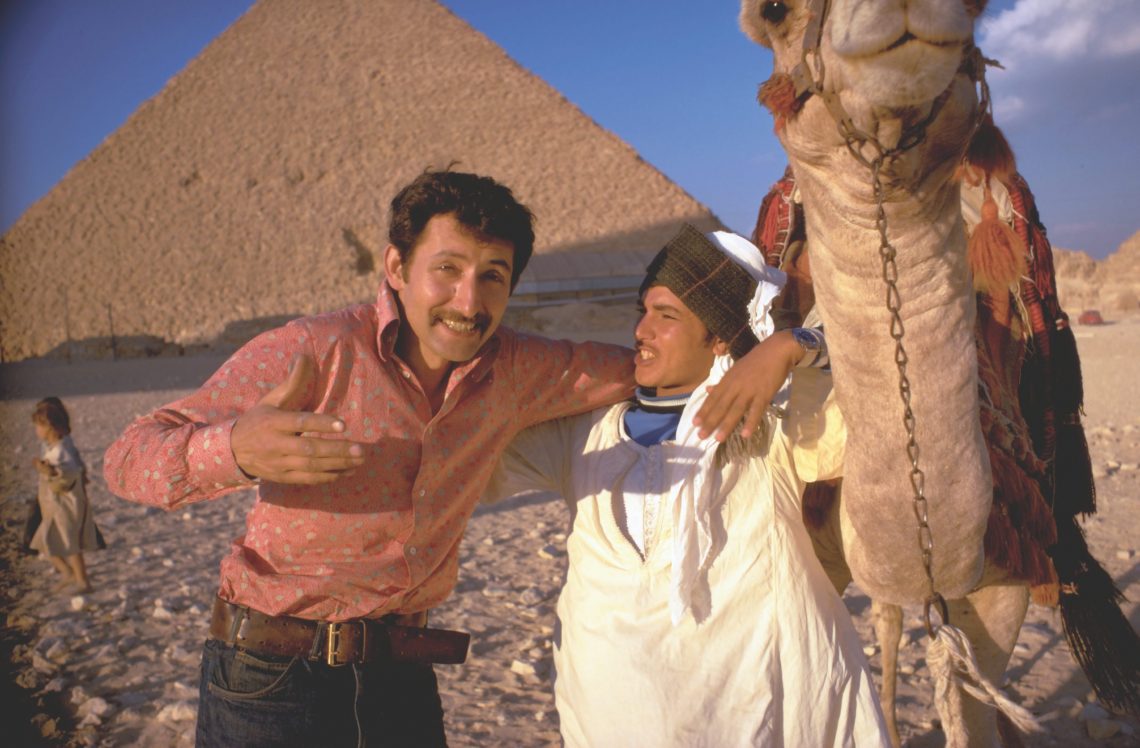
“The book is really my afterlife. That’s where I’ll go when I die”
“It took me a year to write it”, he says. “There was no other way to write it except by writing about myself. That was the only way I could think of going because it was really about my experience. Inevitably, it was about the effect those experiences had on me, so that’s just how it all came out. And, fortunately, I didn’t feel inhibited about doing it, whereas I think, for many people, it would have been very inhibiting.
“It was the journey itself that helped me to feel free to describe things as they actually happened and not to conceal stuff. I think that’s part of what made the book so successful and it’s certainly what crossed all kinds of lines. Women liked it as much, if not more, than men. They liked the idea of somebody not trying to be a hero or doing macho stuff. Someone who was willing to admit failings and fears and so it was not difficult at all to do that.”
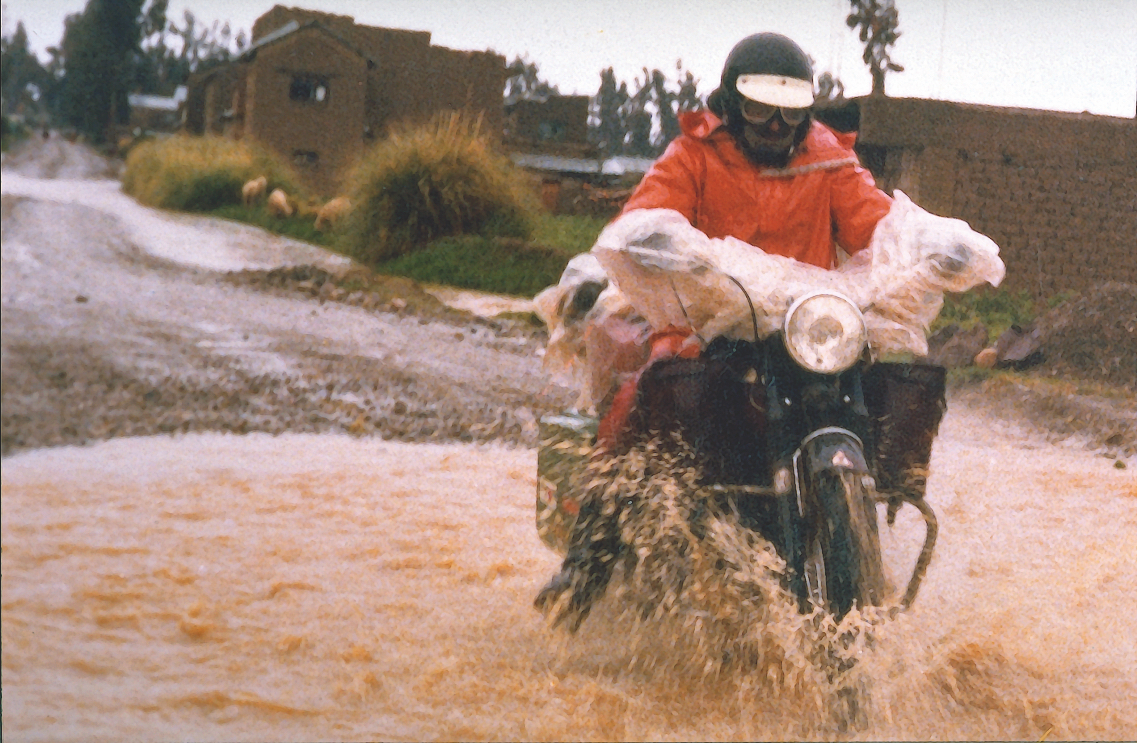
“It was just hard work to write it well. I find writing really quite hard work and I pay a lot of attention to detail. The construction of the sentences and the paragraphs and the general form of the book, that’s what’s hard to do. But getting the truth on paper is a technical problem not a moral one. I found it not at all hard to write about how I felt at different times. The nice things I did, the shameful things I did, the surprising things I did. That was easy for me to write about.”
The title of Jupiter’s Travels has its origins in an encounter Ted had at an Indian wedding with a man said to be a clairvoyant and a seer who could read a man’s soul and destiny. This man took Ted’s hand and told the traveller he had a determined soul and mind, before telling him “You are Jupiter”. Somewhat ironically for someone who doesn’t believe in the afterlife, Jupiter is often referred to in Hindu mythology as the guide or teacher of the Gods.
“I don’t believe in God”, Ted says. “So, the book is really my afterlife. That’s where I’ll go when I die.”
I’ll certainly pass Jupiter’s Travels on to my children just as my dad did to me so that, in my family, and in plenty of others I’m sure, Jupiter and the story of his travels will continue to live on, teach and guide future generations for many years to come.

